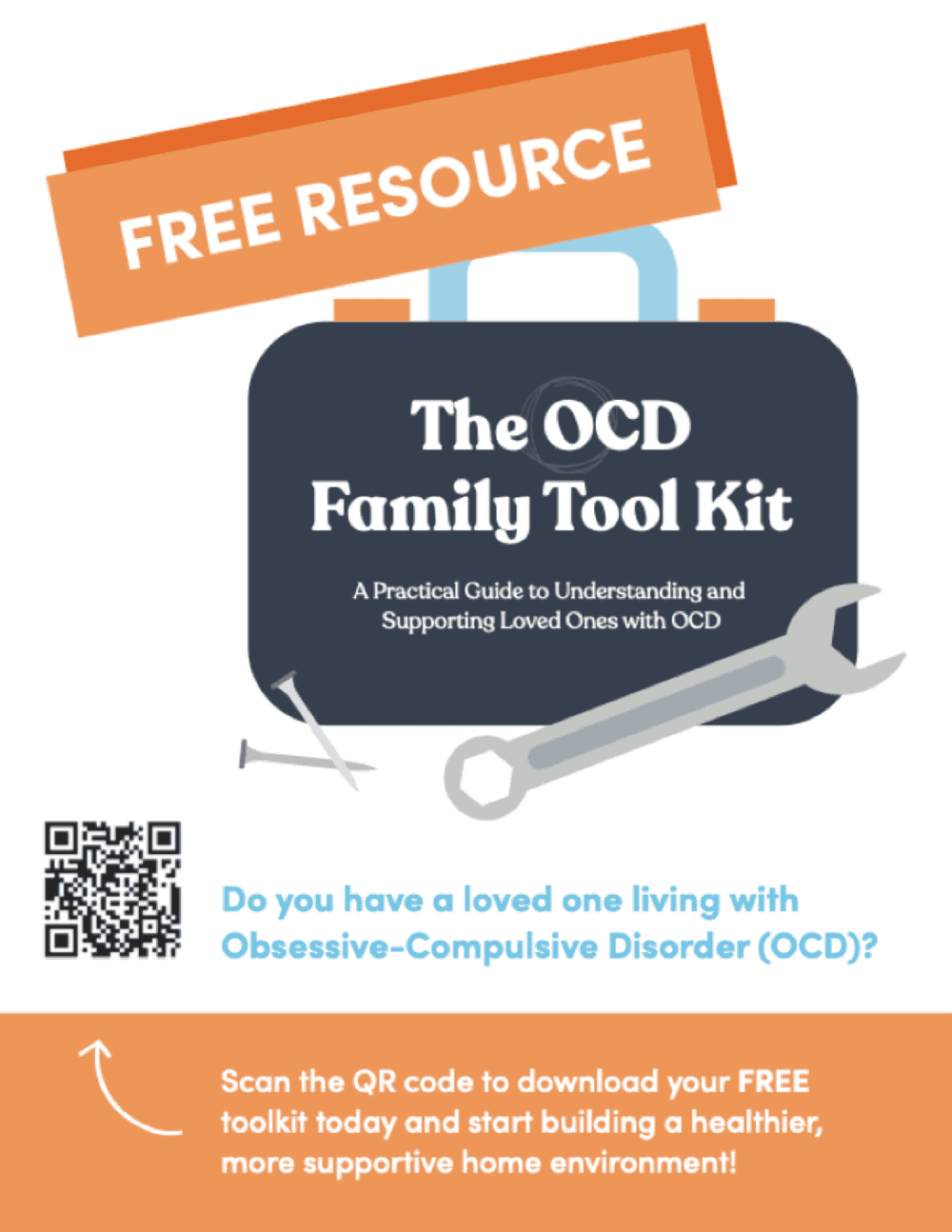Scrupulosity OCD
Learn to find peace when scrupulosity clouds your mind.

Scrupulosity OCD can turn your deepest beliefs into sources of fear and anxiety. With the right support, you can find a healthier balance and restore your peace of mind.
Take Steps to Manage Your Scrupulosity
You don't have to let scrupulosity control your life. With the right kind of treatment, you can act on life instead of being acted upon by your scrupulous mind.
At Mindset Family Therapy, we have a passion for helping clients who are suffering with scrupulosity OCD. Reach out today to get started.
Understanding Scrupulosity OCD
The word scrupulous comes from the Latin word scrupulum, which means a small, sharp stone. In ancient Rome, a scruple was a unit of weight measurement. The idea of a small sharp stone represents the persistent pain someone may experience in their everyday life, like the pain of a pebble in someone's shoe, except they cannot get rid of it.
When people are scrupulous, they want to be exact in the way they conduct themselves either with their religion, their morals or both.
Their scrupulous mind targets what matters most to them - their morals and religious beliefs. The constant need to perfectly live their morals and religious beliefs leads them to anxiety, uncertainty, and sometimes depression.

"The details seem so important and so necessary - and indeed they are, but not to the point that they deprive us of peace. Balance is required, and therein lies the real struggle."
Father Thomas M. Santa
Moral Scrupulosity
What are some indications a person may be struggling with moral scrupulosity?
- •Avoiding anything that triggers the unwanted thoughts, emotions, sensations, and urges that bring up uncertainty regarding their moral behavior.
- •Seeking reassurance that they are not as bad as their OCD mind says they are (e.g., asking loved ones, reading information, or mentally going back in time to ensure they actually didn't do anything wrong).
- •Continually criticizing themselves or inflicting physical punishment on themselves for immoral thoughts, past or future immoral misdeeds, or as 'motivation' to be a better person.
- •Engaging in behaviors that help them remember they did not do anything against their values.
- •Constantly reviewing their thoughts, feelings, sensations, and urges to make sure they haven't acted against their values.
- •Ruminating and rationalizing to find relief from unwanted thoughts, feelings, and sensations.
- •Excessive 'altruistic' behaviors that reassure them that they are good individuals.
- •Ritualized words and/or behaviors that decrease anxiety, guilt, uncertainty, and other unwanted emotions and sensations related to their moral values.
- •Constantly reviewing possible scenarios and preparing for the worst.
- •Repeatedly sacrificing joy and privileges for the sake of others because they don't think they deserve joy and happiness.
Imperfectly Good: A Book About Scrupulosity
A step-by-step guide to help you find relief and happiness in spite of religious or moral OCD (scrupulosity OCD). Learn more about Annabella Hagen's new book.

Religious Scrupulosity
What are some indications a person may be struggling with religious scrupulosity? You may find some overlap between moral and religious OCD.
- •Extreme avoidance of circumstances that may bring about their unwanted thoughts and feelings.
- •Seeking reassurance by confessing to get reassurance that they wouldn't or didn't commit a certain sin, or to find relief from unwanted thoughts and feelings.
- •Repeating religious rituals until they feel God has listened to and accepted their prayers and/or offerings.
- •Engaging in behaviors that help them remember they did not do anything sinful.
- •Continually criticizing or inflicting physical punishment on themselves for immoral thoughts, past or future immoral misdeeds, or as "motivation" to be a better person.
- •Washing or bathing to "get rid of" unwanted "sinful" thoughts, feelings, and sensations.
- •Bargaining with God to ensure forgiveness and find relief from intense guilt and other unwanted emotions.
- •Excessive and repetitive behaviors or thoughts (rumination) about how they can make things better or undo 'bad' thoughts and feelings.
- •Continually asking God for forgiveness.
- •Constantly reviewing their thoughts and feelings to ensure themselves they haven't acted in opposition to their religious beliefs.
- •Sacrificing joy and earthly privileges to show God their devotion and/or repentance.

Common Questions from Potential Clients
What is the average age range of clients that come into your office with scrupulosity symptoms?
Most of the clients we see at our clinic who struggle with scrupulosity are young adults - ages ranging between 18 to 26. Many of them are students. Others are getting ready to go on a mission - either they have a mission call or have been asked to receive treatment before sending in their paper work. We also see clients who have returned early from their mission or who completed their mission and discovered they had scrupulosity OCD while serving.
What are some of the common symptoms you see among your clients with scrupulosity? Have you noticed any symptoms that are unique to the LDS faith (i.e., obsession with paying tithing)?
The driving force with any type of OCD, including scrupulosity, is uncertainty. Individuals struggling with scrupulosity can be worried about anything related to their religion and morals including tithing. Though tithing may appear to be clear-cut - you either pay or you don't - it's not that simple for some people. They may struggle with decisions as to what money earned or gifted should be tithed, and question whether they have paid their tithing sincerely or not.
The most common symptom is obsessing (rumination) about present or past behaviors which may have jeopardized their standing before God. Uncertainty drives clients to obsess about whether they are good enough or worthy of God's love and blessings, and to do something to feel better about the way they think God views them. Scrupulosity is an equal opportunity disorder, so it relates to their own experiences and what is important to them.
The Scrupulosity Cycle
Trigger:
Any external or internal events (i.e., thoughts, feelings, sensations, and urges) that trigger the initial thought.
Obsessions:
The initial thought will bring up additional thoughts (obsessions). Individuals will usually get caught up with the content of their thoughts related to different areas.
These may include: honesty, doing missionary work, praying humbly and sincerely, obeying the word of wisdom, the law of chastity, reading and studying scriptures, obsessing about having only pure thoughts, avoiding blasphemous thoughts, serving and ministering, going to the temple, etc. Individuals struggling with scrupulosity may believe that they are not doing enough, and continually question their intentions and behavior.
Feelings & Bodily Sensations:
The obsessions lead clients to have unpleasant feelings such as anxiety, guilt, shame, frustration, hopelessness, or depression, among many other feelings. Those feelings in turn create unpleasant bodily sensations that lead them to want to do something to rid themselves of the unpleasant thoughts, feelings, and sensations.
Compulsions:
Whatever they do to find relief from those internal events are the compulsions. They may be mental or external rituals such as reviewing the past and going through every detail in their minds (past behavior, thoughts, intentions, and other internal events).
Other individuals may pray for long hours (until their prayer feels just right, humble, and sincere enough). They may pray constantly as a form of repentance. They may read and re-read verses of scripture. If they get distracted by their minds, they go back and read again. They may continually confess to their bishops to ensure they are worthy of God's blessings and of partaking of sacred ordinances. They may check labels of food or if at a restaurant may ask for all the ingredients their meal contains to ensure they're keeping the word of wisdom.
They may wrongly believe their anxiety is the Spirit telling them to repeatedly do something such as sharing the gospel with people every single day, which could become their focus each day. They may also confuse their anxiety with the Spirit in social/romantic situations. For example, some people get "cold feet" as their relationship gets more serious. However, when individuals experience scrupulosity, they believe the anxiety they are experiencing may be the Spirit sending them a message. They then assume that this feeling is a "sign" they should break up. They find relief from their anxiety until their next relationship.
Reassurance seeking is also a compulsion when individuals review situations in their minds to ensure they didn't do anything wrong to offend God or others. They may experience inflated sense of responsibility (hyper-responsibility) in certain areas of their lives - where scrupulosity is targeting their fears. They may constantly ask questions to feel reassured they haven't done something immoral and are good enough. They may also read about topics related to their scrupulosity to feel reassured they haven't sinned or offended God.
Relief:
After performing compulsive behaviors, they may find some short-term relief from their unpleasant internal events (i.e., thoughts, memories, judgments, feelings, and sensations). The peace and comfort they experience may be short-lived until the next trigger, which gets them stuck in the cycle again.
Clients usually don't recognize that their compulsions (internal or external rituals) to find relief from the unpleasant thoughts, feelings, and sensations is for scrupulosity's sake -- not for love of their religion. They don't realize that the obsessions and compulsions strengthen the scrupulosity cycle and ironically weakens their relationship with God.

What kind of help and support do you offer to clients with OCD and scrupulosity? What has been most effective?
Cognitive behavioral therapy has been the treatment of preference because the behavioral part of CBT consists in helping individuals face their fears (internal events such as thoughts, memories, images, feelings, and sensations), and respond differently (behavioral change) than they have in the past.
This intervention is called Exposure and Response Prevention (ERP). This can sound scary for some, but if done with a therapist who understands the treatment for OCD and specifically scrupulosity, ERP is seen by individuals as an opportunity to respond differently and change their relationship with their internal events (i.e., thoughts, feelings, and sensations).
At Mindset Family Therapy we provide skills and tools that have been proven to be effective from CBT, ERP, and ACT (Acceptance and Commitment Therapy). We help clients understand that the goal of the treatment is not to "get rid" of unpleasant internal events (i.e., thoughts, memories, images, feelings, sensations, and urges) because they are natural events that occur in every human body. There is no delete button in our bodies and minds. We cannot control internal events the way we can some external situations.
Through ACT (pronounced as the verb to act), clients develop psychological flexibility as they practice ERP while using skills to help them become untangled from their thoughts and other internal events.
Clients recognize there is more to them than their thoughts while applying skills to take a step back from the content of their thoughts.
They connect with the present instead of being stuck in the scrupulosity cycle.
Clients learn the difference between acting on the urge to live their religion perfectly and living their religion as God would want them to.
They implement skills to accept what they cannot change in that moment (i.e., thoughts, feelings, sensations) and respond differently (ERP).
They utilize skills that help them recognize when they are moving closer to their values (who and what matters most) or away from them, and to adjust accordingly.
Articles on Scrupulosity
- •The Scrupulosity OCD Mind is The Human Part of You!
- •Scrupulosity OCD and the Sin of Certainty
- •OCD and the Pervasive Reassurance-Seeking Compulsion
- •Is It Your Sense Of Integrity or Is It Your OCD?
- •Scrupulosity OCD — You Have Choices!
- •Scrupulosity: When OCD Targets Your Religious and Moral Values
References
Thomas M. Santa, Understanding Scrupulosity: Helpful Answers for Those Who Experience Nagging Questions and Doubts, Second Edition (Liguori, MO: Liguori/Triumph), 2007, 7s.
Twohig, M. P., Abramowitz, J. S., Bluett, E. J., Fabricant, L. E., Jacoby, R. J., Morrison, K. L., Smith, B. M. (2015). Exposure therapy for OCD from an acceptance and commitment therapy (ACT) framework. Journal of Obsessive-compulsive and Related Disorders, 6, 167-173, http://dx.doi.org/10.1016/j.jocrd.2014.12.007
Twohig MP, Abramowitz JS, Smith BM, et al. Adding acceptance and commitment therapy to exposure and response prevention for obsessive-compulsive disorder: A randomized controlled trial. Behav Res Ther. 2018; 108:1-9. doi:10.1016/j.brat. 2018.06.005, https://pubmed.ncbi.nlm.nih.gov/29966992/
Twohig, M. P., Abramowitz, J. S., Smith, B.M., Fabricant, L. E., Jacoby, R. J., Morrison K. L., Bluett, E. J., Reuman, L., Blake, S. M. , Ledermann, T. (2018). Adding acceptance and commitment therapy to exposure and response prevention for obsessive-compulsive disorder: A randomized controlled trial. Behaviour Research and Therapy, 108, 1-9, http://jonabram.web.unc.edu/files/2018/08/Twohig-et-al-2018-ACT-ERP.pdf
Latest Articles
When OCD Feels Like a Third Wheel in Your Romantic Relationship
February 01, 2026
OCD or Not: What Do You Want Your Life to Be About?
January 01, 2026
Five Tools to Respond to OCD Flare-Ups During the Holidays!
December 08, 2025
How a Gratitude Mindset Can Build Inner Peace Despite Anxiety
November 06, 2025
Understanding OCD: Awareness, Compassion, and Recovery
October 10, 2025
Newsletter
Subscribe to our newsletter to stay up-to-date with the latest from Mindset Family Therapy.
Books
Explore our books on religious and moral scrupulosity OCD, anxiety, and parenting anxious children. Each book offers tools, insight, and practical guidance.


